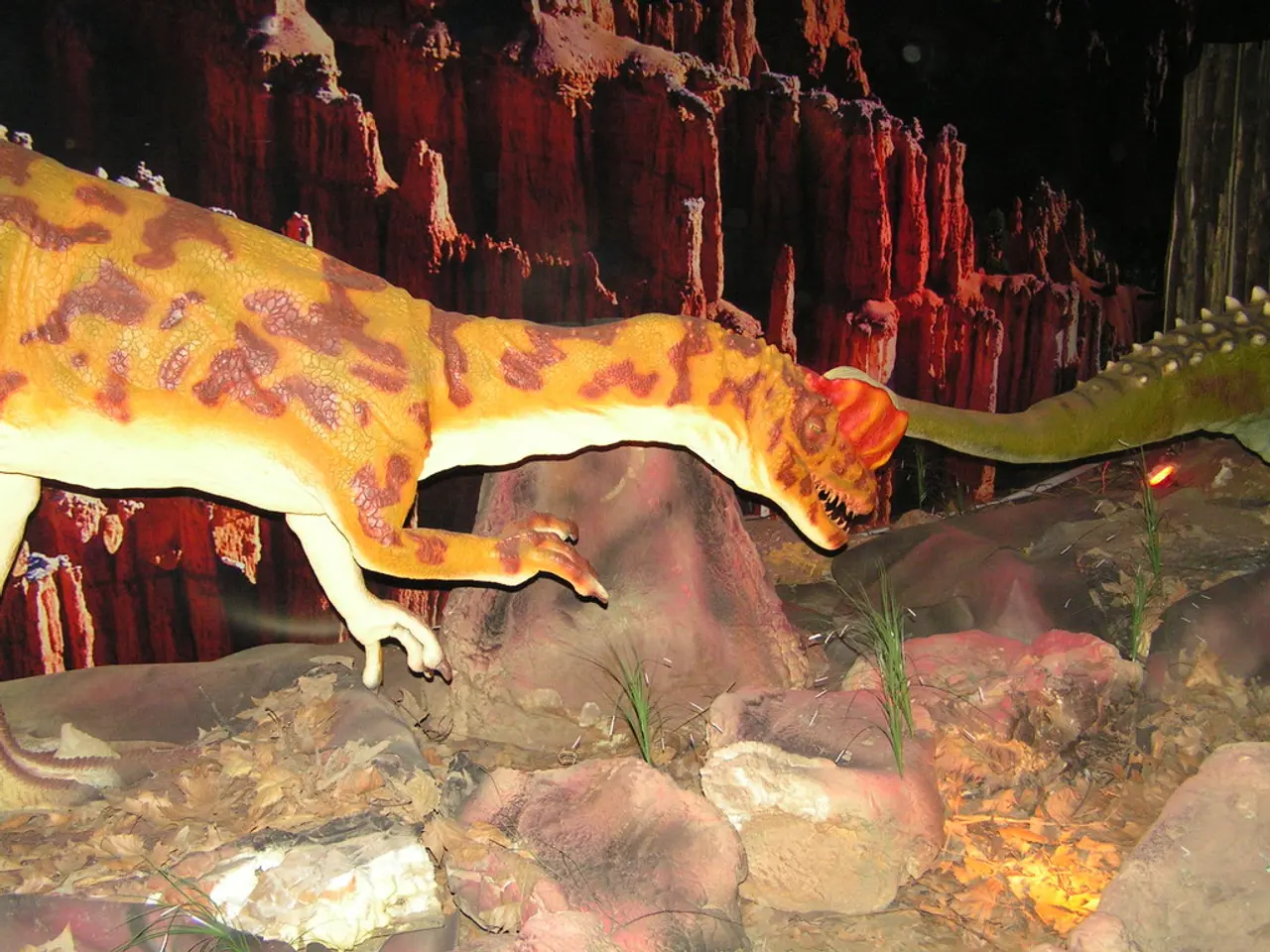Surviving Prehistoric Creatures: Tuataras - Reptiles that Lived Beyond the Dinosaur Era
In the land of Aotearoa, New Zealand, an ancient reptile known as the tuatara has become a beacon of scientific discovery and conservation success. These unique creatures, found nowhere else in the world, have offered valuable insights into genetics, evolution, immune systems, and aging processes.
Tuatara are known for their adaptability, often seen basking in the sun during the day, but equally comfortable hunting at night for insects, spiders, and small birds. This versatility has allowed them to survive in New Zealand's unpredictable climate, where cold snaps are common.
For the indigenous Māori people, tuatara hold a special place in tradition and myth. They are considered taonga (treasures) and associated with guardianship and ancient wisdom. Some Māori legends describe tuatara as messengers between the physical and spiritual worlds.
However, climate change poses new risks to tuatara. Rising temperatures could potentially skew the sex ratio of hatchlings, threatening the delicate balance of their populations. To ensure their continued survival, habitat protection, careful monitoring, and continued collaboration with Māori communities will be vital.
Fortunately, the current status of tuatara conservation efforts is active and progressing well. Recent initiatives, such as the Brook Waimārama Sanctuary's tuatara relocation project, have successfully moved 65 tuatara into a protected, pest-controlled sanctuary in the South Island. This marks the first wild release in the Whakatu/Nelson region in over a century.
These efforts are being conducted with strong involvement from Māori iwi, particularly Ngāti Koata, integrating Indigenous knowledge and cultural values—kaitiakitanga (guardianship)—with modern conservation science. The success of such projects is evidenced by recent tuatara sightings within the sanctuary, indicating that safe habitats and pest control measures are enabling their populations to thrive.
Takapourewa (Stephen Island), co-managed by Ngāti Koata, remains one of the largest natural populations, benefiting from ongoing ecological monitoring and culturally respectful research practices. Overall, tuatara conservation in New Zealand illustrates a bicultural conservation model combining community participation, scientific management, and Indigenous stewardship to protect this ancient and endangered reptile.
After centuries of decline due to habitat loss and invasive predators, conservation efforts have helped protect remaining tuatara populations through intensive breeding, relocation programs, and genetic monitoring. Despite their nocturnal activity, tuatara are active during cool nights and winter, unlike most reptiles which are forced into hibernation or inactivity during these periods.
The effort to protect and restore tuatara populations is deeply intertwined with Māori values, with many conservation programs working in partnership with local iwi (tribes) to ensure these remarkable reptiles continue to thrive. This collaboration not only ensures the survival of the tuatara but also preserves the rich cultural heritage of New Zealand's indigenous people.








